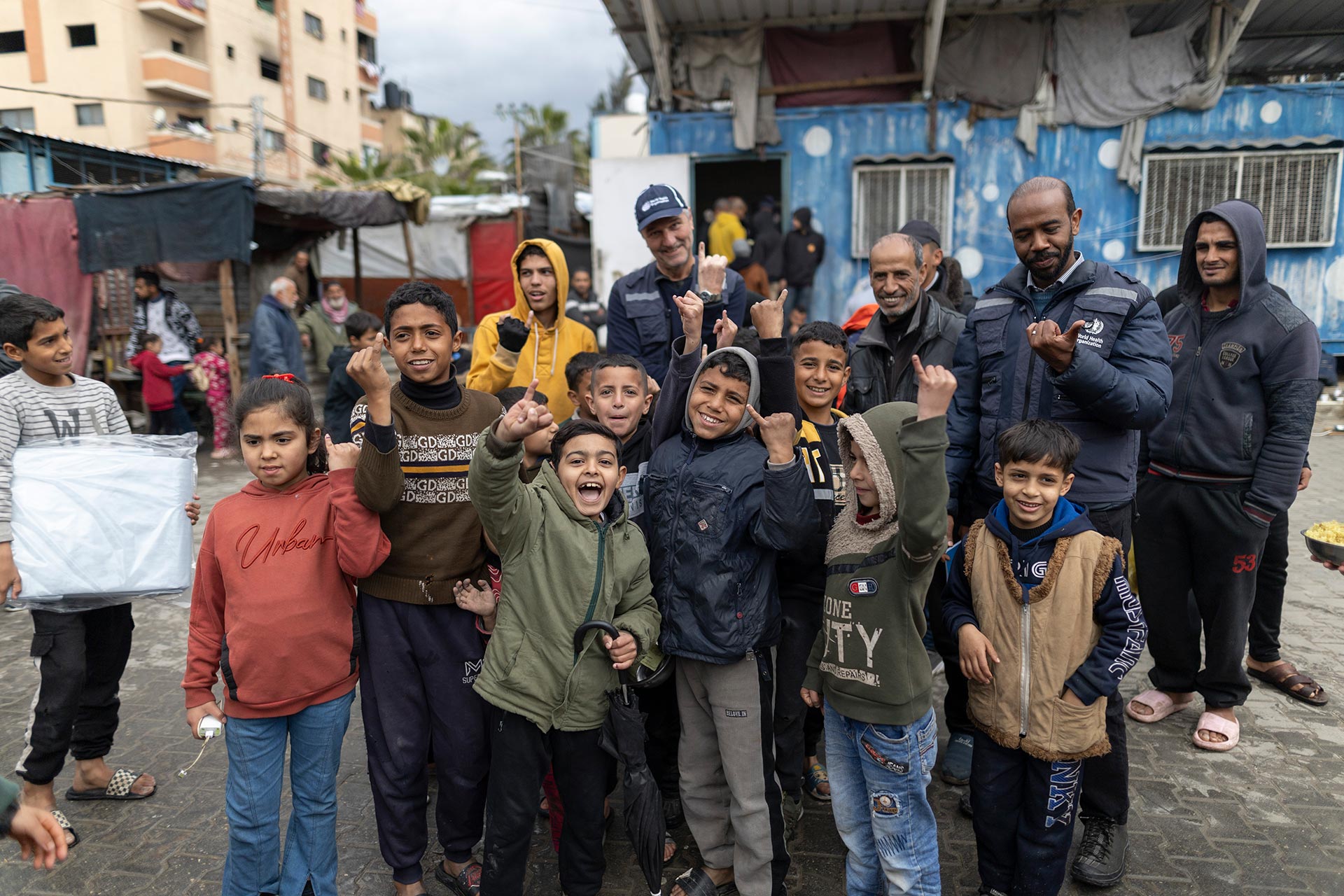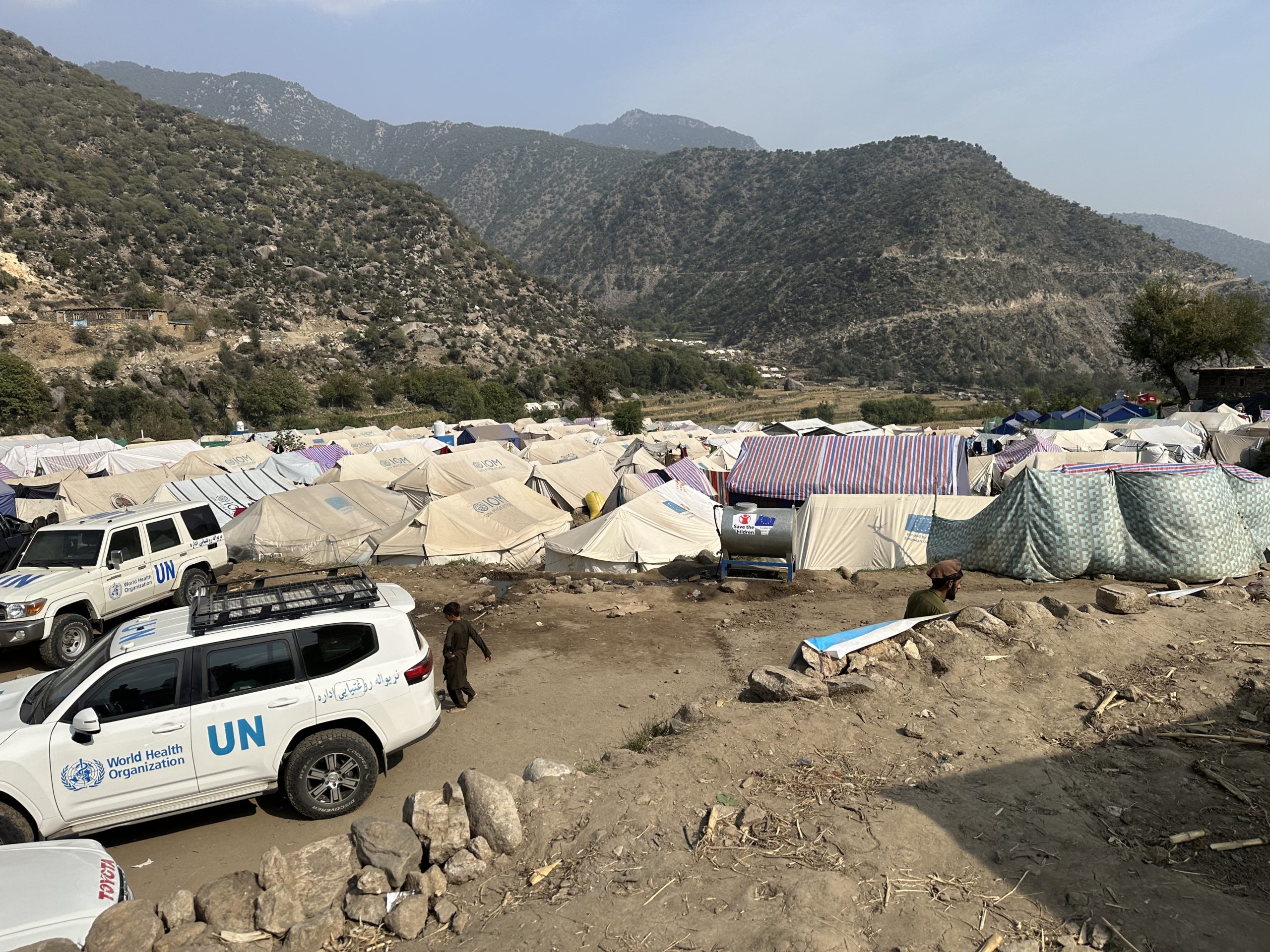Geneva, Switzerland, January 2024 – Convening this week at the World Health Organization (WHO) headquarters, global health leaders and Ministers of Health at the WHO Executive Board (EB) reaffirmed their commitment to eradicate polio once and for all and use the polio investments to build strong, equitable and resilient health systems.
Opening the EB amid a wide array of public health topics on the agenda, WHO Director-General Dr Tedros Adhanom Ghebreyesus told assembled delegates: “We continue to intensify our efforts to eradicate polio. Last year, six cases of wild poliovirus were reported in Pakistan, and six in Afghanistan, the second-lowest number of cases reported in a calendar year. Our target is to interrupt transmission of wild poliovirus this year.”
Member States noted the unique opportunity to eradicate remaining wild poliovirus type 1 endemic transmission, which is now limited to just a handful of areas of eastern Afghanistan and three districts of southern Khyber Pakhtunkhwa, Pakistan, and urged for continued intensified efforts to reaching all remaining un- or under-immunized children in those areas. Delegates also reiterated the importance of intensifying efforts to combat variant poliovirus outbreaks (circulating vaccine-derived polioviruses), including through strengthened outbreak response and the continued roll-out of novel oral polio vaccine type 2, which became the first vaccine used under Emergency Use Listing (EUL) to be pre-qualified by WHO. The engines of transmission for such strains are in clearly-identified and known most consequential geographies, namely north-western Nigeria, eastern Democratic Republic of the Congo, south-central Somalia and northern Yemen.
Speaking on behalf of WHO Regional Director for the Eastern Mediterranean Dr Ahmed Al Mandhari, Dr Hamid Jafari, Director for Polio Eradication in the Eastern Mediterranean said: “In Afghanistan and Pakistan, the national programmes deployed innovative strategies and strengthened partnerships with humanitarian actors to reach more children. And across the region, the programme also identified pathways for sustaining essential polio functions, through integration with existing programmes. In particular, I am proud of the work of the Regional Subcommittee for Polio Eradication and Outbreaks that we started back in 2021. Their advocacy and support have successfully carved out clear pathways towards protecting children in the Region from polio and other vaccine-preventable diseases.”
Within this context, delegates thanked current Regional Director Dr Ahmed Al Mandhari, for his personal engagement and leadership in bringing the region to the threshold of success; and welcomed his successor, Dr Hanan H Balkhy, who committed to leading the region across the finish line.
“On behalf of the core partners of the Global Polio Eradication Initiative, Rotary International, the US Centers for Disease Control and Prevention (CDC), UNICEF, the Bill & Melinda Gates Foundation and Gavi, the Vaccine Alliance, we would like to thank all Member States for their tremendous efforts,” said Aidan O’Leary, WHO Director for Polio Eradication and Chair of the Global Polio Eradication Initiative Strategy Committee. “Last year, thanks to your efforts, upwards of 800 million children were immunized, many in areas with protracted and complex emergencies. The reality is that it is precisely in such areas of complex emergencies where polio persists, and unfortunately those emergencies are becoming even more complex. We need the continued political will of Member States to overcoming whatever geo-political challenges might currently stand in the way of reaching that remaining last unreached child in these areas. Be assured that together with our partners, we stand ready to support you in your incredible efforts.” Underscoring WHO’s commitment to the effort, O’Leary reminded the EB that WHO now considered the effort to eradicate polio as its only Public Health Emergency of International Concern (PHEIC), under the International Health Regulations (IHR).
O’Leary also reminded delegates of our collective duty to prepare for a lasting polio-free world. He referenced specifically the new approach to polio transition, which draws upon lessons-learned, and puts countries at the forefront, as solutions need to be country-specific, tailored to each country’s own context. Within that context, delegates emphasized the importance of implementing all activities to not only achieve a polio-free world, but also to sustain it through strengthening essential immunization, surveillance, integration and transition, reiterating their support and commitment to fully finance the Global Polio Eradication Initiative Strategy and the WHO base budget.
Speaking on behalf of Rotarians around the world and civil society as a whole, Judith Diment of Rotary International’s PolioPlus Committee, congratulated delegates on ongoing efforts to protect children from devastating diseases such as polio. “The Global Polio Eradication Initiative is closing in on zero, with fewer cases in fewer places in 2023, reaching more children through tailored approaches to increase public demand and identifying missed children. We applaud the use of targeted, integrated activities.”



